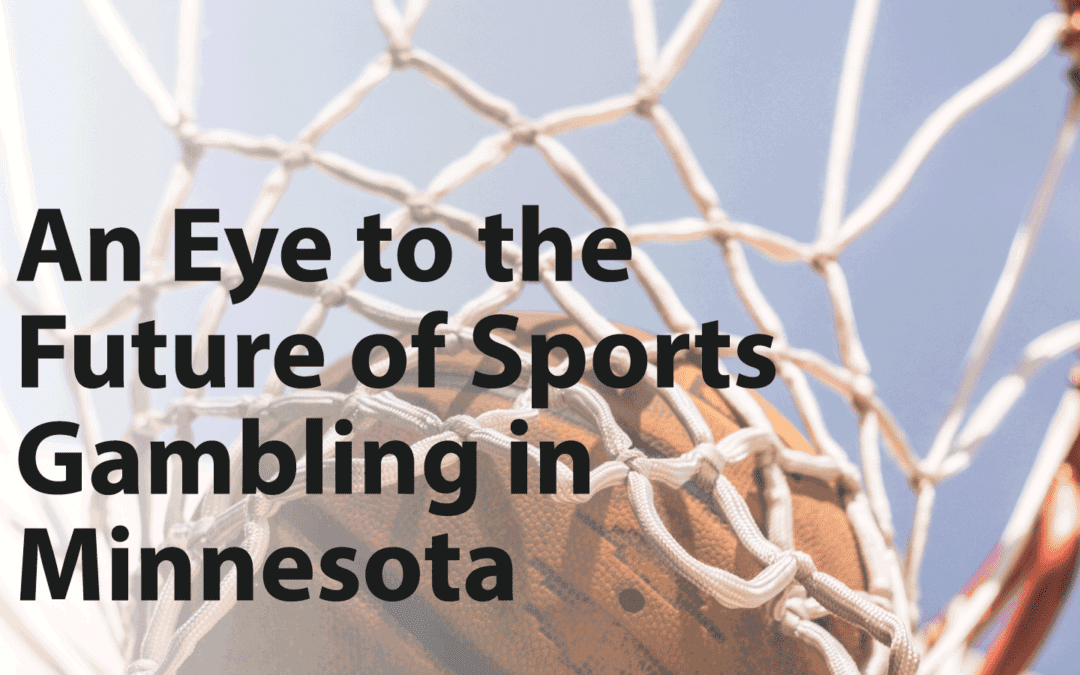Although Minnesota did not pass a bill legalizing sports gambling during the last session, many think it’s just a matter of time before it happens. With an eye toward the future – and an eye on the experiences of several other states who have legalized sports gambling – we talked to problem gambling leaders in New Jersey and Michigan for their observations and warnings. (The Summer 2023 issue of Northern Light highlighted the sports gambling experiences of Ohio and Pennsylvania.)
New Jersey
In New Jersey, where brick-and-mortar gambling has existed since 1978, online gambling was legalized in 2013. Sportsbooks became legal in 2018, leading to a dramatic increase in sports gambling.
Among other notable changes is the increase in gambling advertising, which has “bombarded the public,” according to Felicia Grondin, executive director of the Council on Compulsive Gambling of New Jersey (CCGNJ). She notes that the gambling industry’s advertising was $292 million in 2020 and $725 million a year later.
CCGNJ has worked with the state to regulate gambling advertising. The New Jersey Division of Gaming Enforcement (DGE) has begun a new responsible gambling initiative whereby operators must abide by certain requirements, including the frequency of advertising and font size (to ensure visibility of problem gambling helpline information). CCGNJ has also been advocating for a PSA-type ad that will inform the state’s residents of the potential for gambling harm.
Increase in Calls for Help
Calls to the state’s problem gambling helpline are up dramatically. Of the increase in helpline calls, 20 percent are related to sportsbooks and 27% are related to online play, a considerable portion of which is presumed to be related to sports gambling. There’s been a reduction in general calls from people asking where to find casinos, what winning numbers are for the lottery, etc., but calls have increased from those who need help with a gambling problem. “I think the public is starting to understand more about the purpose of our 800GAMBLER helpline and how it works,” says Felicia.
Effective Communications with State Legislature
CCGNJ has also put an emphasis on communications with the state legislature, which Felicia says has proven fruitful. They engage legislators on various problem gambling topics through visits to the statehouse and bi-monthly blogs. Thanks to these efforts, the state has been more deliberate in its approach to gambling. One example is reducing a ten-year extension for online gambling to five years. “Legislators are recognizing that people are developing gambling problems and the importance of monitoring its related impact,” says Felicia.
Educating School Students
Shortly before the state assembly introduced a bill to require schools to provide instruction on the risks of gambling, as they do with other public health issues, the CCGNJ created the Cognitive Perspective Restructuring program (CPR). The program educates kids about risky behavior, including gambling, and how to make wise choices for a bright future.
As it relates to Minnesota, Felicia cites several things that our state should think about as it considers legalizing sports gambling:
o Establish parameters around advertising — frequency, the content, where it’s aired, etc.
o Post warning labels at brick-and-mortar locations as well as online.
o Ensure that students are educated about the risks of gambling at an early age.
o Produce public service announcements to create greater awareness.
o Request an increase in problem gambling funding commensurate with expected growth in gambling.
Michigan
Michigan officially legalized sports betting in December 2019. The first retail sportsbooks in the state opened in March 2020 and the online launch took place in January 2021.
The growth in sports gambling echoes the growth occurring around the nation. In September 2023, Michigan sportsbooks tallied $457.7 million in bets for the month. This represents a 25.6% increase from September of 2022.
With the availability of online gambling, Michael Burke, executive director of the Michigan Association on Problem Gambling, says it’s as though Michigan has gone from 34 casinos to a state that has 10 million casinos in the pockets of each resident. “It used to take people five to ten years to get addicted, but with easier access now, it’s more like five to ten months,” he says. Michael also is concerned about the impact of easy access on youth gambling and says that educating kids about the risks is vital.
According to the Michigan Department of Health and Human Services, in the first year since the legalization of sports betting and online gambling in Michigan, more than 4,400 calls were made to the state’s problem gambling helpline in 2021. This was nearly triple the number of calls received in 2020, the year before online gambling was approved. Referrals for people to receive gambling treatment also grew significantly, from 295 referrals in 2020 to 420 referrals in 2021, a 42% increase.
As Michael looks to a state (such as Minnesota) that hasn’t yet legalized sports gambling, he has a warning. “If you’re going to bring in gambling, you have to know what the results are going to be as far as compulsive gambling is concerned,” he says. “Legislators need to take their responsibility seriously and ensure that there’s something in place for a person who suffers harm from gambling. That’s the least they can do.”

